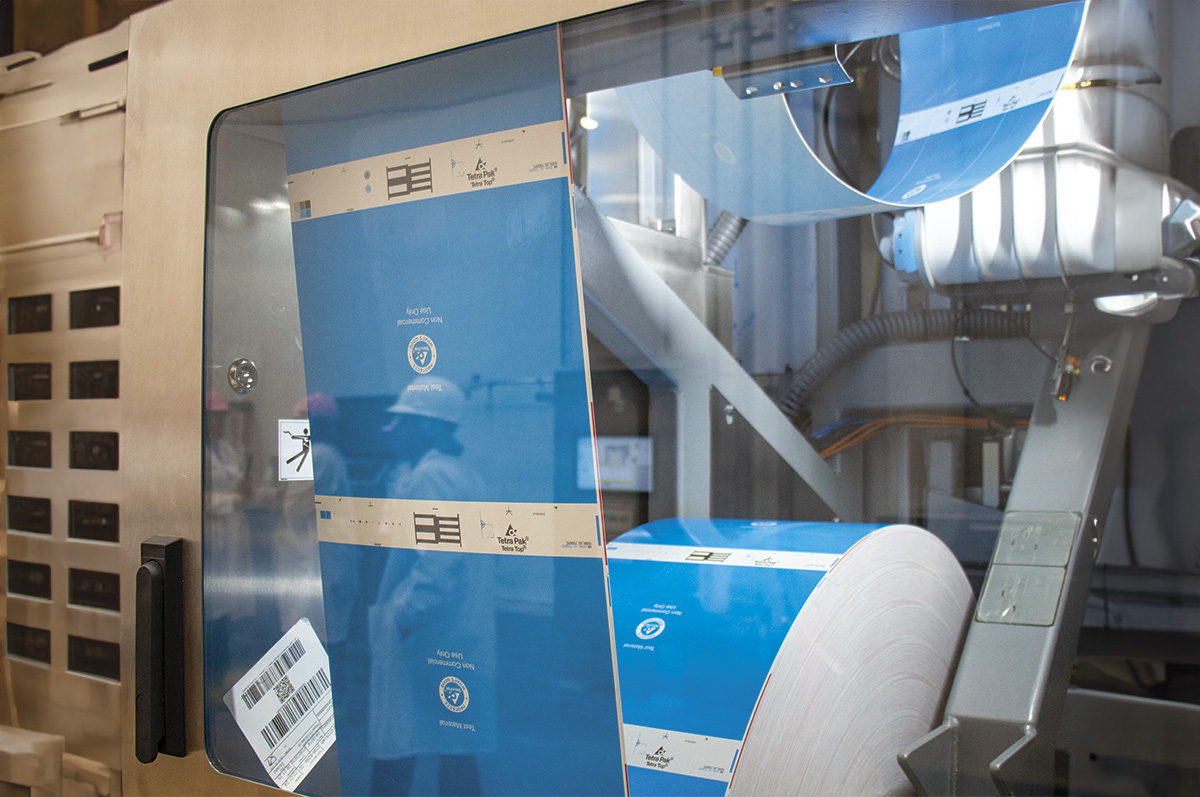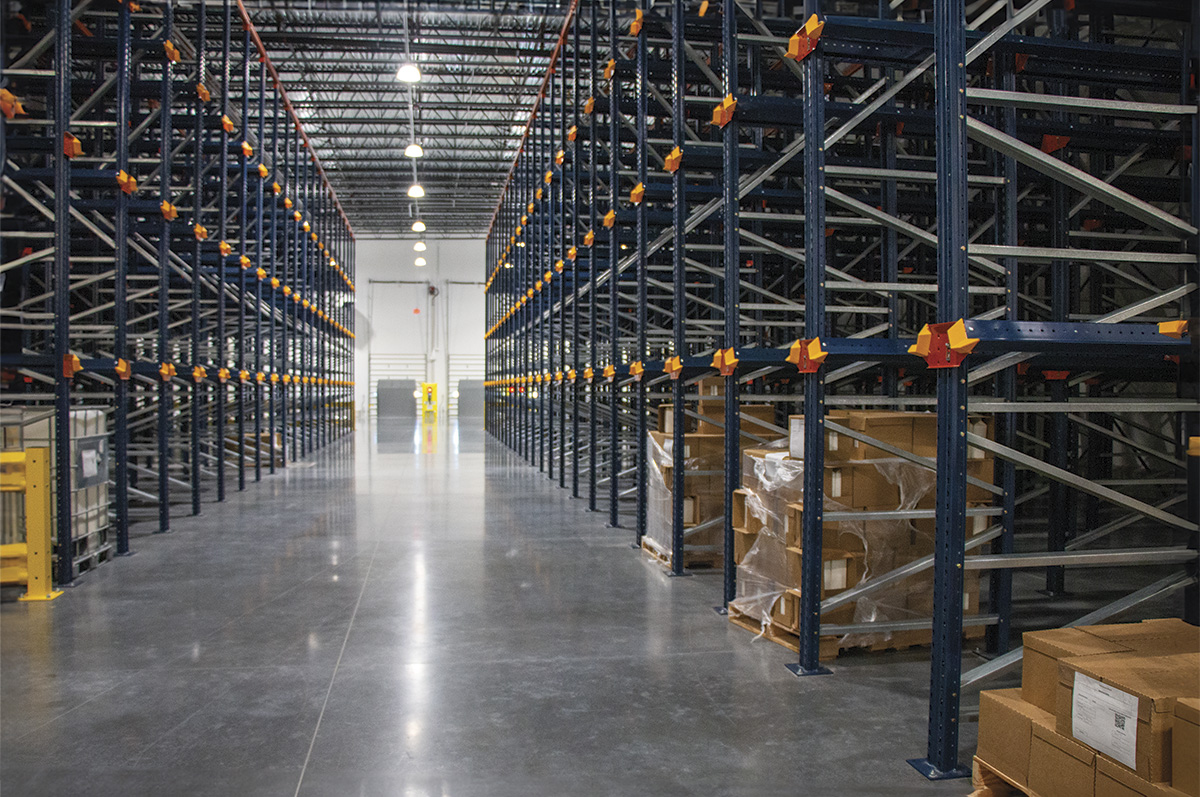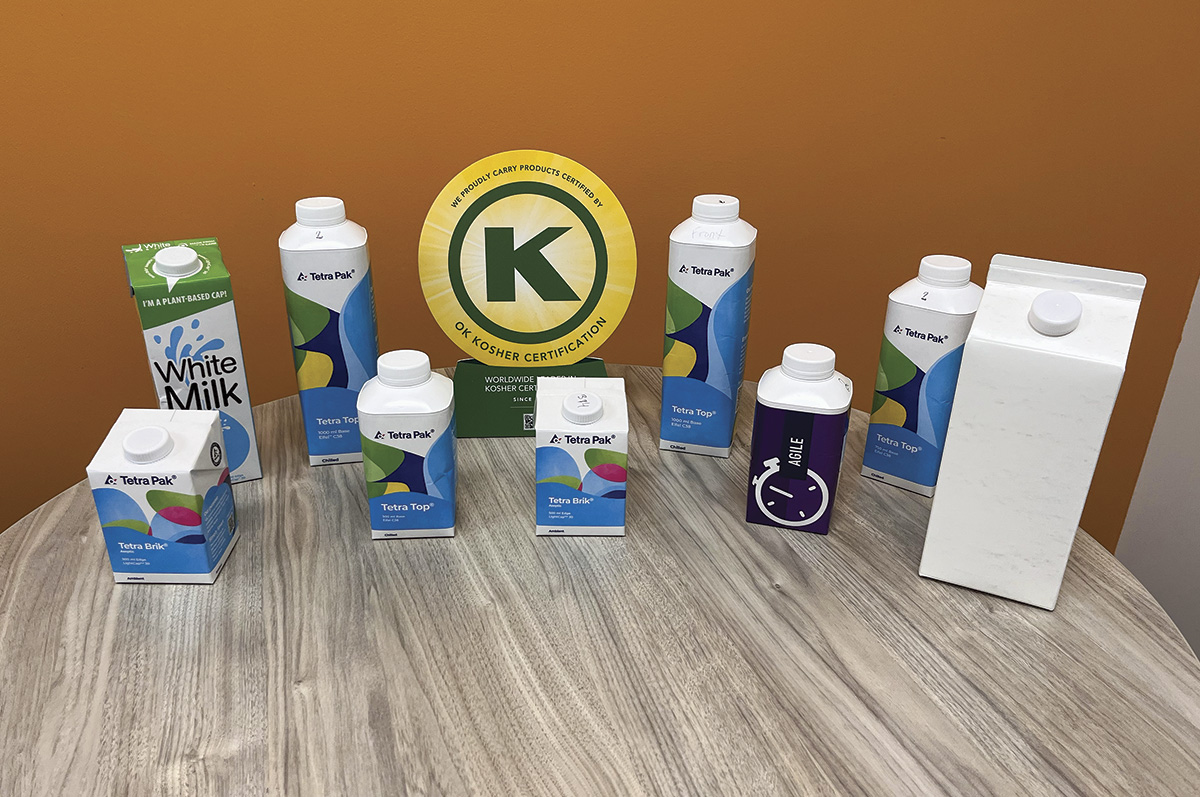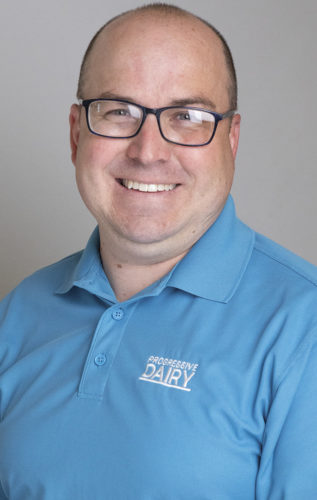Dairyman Jesus Hurtado’s fate was intertwined with the late John Reitsma and his dairies for nearly three decades. Now Hurtado and John’s son Dirk Reitsma and their dairy futures are connected again through co-investment in a new milk plant in Burley, Idaho.
The new 190,000-square-foot facility on 23 acres in Burley known as Suntado opened in June 2024. It began processing milk from Hurtado and Reitsma dairies, who respectively own 30,000 conventional dairy cows and 6,000 organic dairy cows within 20 miles of the facility. The plant processes milk, cream and dairy-based beverages into shelf-stable and extended shelf-life packages ranging in size from half-gallon to single-serve 8-ounce containers. The company doesn’t have its own brand. Instead, it works with retailers and national brands to create private-label beverage products.
“Anytime you can process milk from the cow to the package within 24 hours, you make a superior product that enhances a brand or private label,” says Tory Nichols, office of the CEO for Suntado. Nichols believes the key to the success of the facility will be the Suntado team’s ability to process high-quality milk and cream quickly.
The new plant’s motto is: Taste the quality. Consumers outside of Idaho, and even around the world, will have the chance to taste Idaho milk because of the unique extended shelf-life packaging the plant will use. The plant is using cutting-edge aseptic packaging equipment from Tetra Pak to package milk and make it available for sale throughout the world.

Suntado’s aseptic packaging begins as thick paper on a roll and is formed on-site into twist-top dairy beverage containers. A single roll of this aseptic packaging can make and fill 1 million packages of single-serve milk. Photo by Walt Cooley.
“This facility is state-of-the-art and something that is much needed. We have very little shelf-stable milk supply in the country,” says Karianne Fallow, CEO of Dairy West, the milk promotion organization for Idaho producers. “These are farmers who saw the need for transformation in our industry and took it upon themselves to vertically integrate. It reinforces the spirit of innovation that exists in Idaho's dairy sector.”
Hurtado came to the U.S. from Mexico as a teenager and began milking on dairy farms in Idaho. By the time he was in his 20s, he started working as a milker on one of John Reitsma’s dairy farms. John helped Hurtado buy his first dozen milking cows and house them with his dairy herd. Reitsma saw potential in Hurtado and moved him to a herd manager on Reitsma's farm before eventually telling him he needed to start his own dairy.
“I can see that you’re going to get bigger than me one day,” Hurtado recalls Reitsma saying to him.
Reitsma was an early investor in Hurtado when he struck out on his own. Today, Hurtado owns tens of thousands of cows on multiple dairy facilities throughout the Magic Valley.
“When John passed away in 2019, Dirk and I took over where he left off. We kept talking and talking and working, and here we are. We built it,” Hurtado says.
Dirk Reitsma hopes to honor his father’s legacy with the dairy plant he helped inspire before his passing.

Suntado has room temperature and cold storage on-site capable of holding up to seven days of product on hand for customers. Photo by Walt Cooley.
“I feel like he’s been here with us the whole time,” Dirk says. “He lives on through a lot of people, and I think that’s what we’re doing with this plant. If he were here, I think he’d say, ‘Great job. We got it done. See, if you put your mind to something, you can do it.’”
Dirk says he sees his business partner Hurtado like a big brother. From Dirk’s father, they each learned how to operate a successful dairy business.
“We’re on the same page, and we see eye-to-eye on how we like to run a business,” Dirk says. “He’ll never take the place of my dad, but it’s been nice to have somebody to lean on who has lots of dairy experience.”
The plant will start processing four tankers of milk per day this summer and ramp up to 16 tankers per day by the end of 2024. Within a year, the facility could be processing 20 tankers of milk per day, up to 1 million pounds of milk. Additionally, the facility’s footprint can expand to accommodate future growth. With future additions, the plant could handle 40 milk tankers per day.
“It is our goal to have Idaho milk in the plant,” Nichols says. “Our objective is to take care of Idaho milk producers first.”
As for now, all of the plant’s capacity is already booked by clients who lined up before the plant was open to take its shelf-stable and extended shelf-life milk supply. Suntado executives say this is the demand they were hoping to see when they started building the facility in the middle of the COVID-19 pandemic.
“Building and operating this plant, my eyes were opened up to food safety regulations,” Dirk says. “Today, I feel really good about how well-protected the food supply is in this country. As a milk producer, it’s easy to say, ‘It’s milk. Ship it. It’s going to get pasteurized.’ But as a plant owner, I see milk freshness and quality different now.”

These are examples of the type of aseptic packaging of milk that Suntado can do for private-label beverage companies. Photo by Walt Cooley.
Dirk says being able to have his organic certified milk processed within a day will improve the finished product. Before the plant started, it wasn’t uncommon for his milk to travel hundreds of miles or a few days before it could be processed.
“Organic milk is typically shipped a long way in the U.S. to get processed,” Dirk says. “We’ve taken a lot of miles out of getting our milk processed with this plant. That’s a big deal. We’ve freshened the product. And it’s going to help the environment on the sustainability side of things by requiring less fuel for hauling.”
Extended shelf-life and aseptic milk packages are current and future growth areas within the dairy category. That’s in part due to changing preferences among consumers when it comes to demand for on-the-go convenience and increased variety of fluid milk products.
“Since COVID, one of the things retail grocery store chains ask of suppliers is their days of supply on hand. In most cases, they want to have 30 days of supply on hand,” says Pedro Gonçalves, vice president of marketing for Tetra Pak U.S. and Canada. “Extended shelf-life and aseptic milk packages enable a brand or retailer to store 2,000 pallets of single-serve chocolate milk, for example, in a warehouse. It stays fresh. It tastes amazing. And the retailer gets security that the supply is there.”
“Our goal is to provide a safe, wholesome, reliable product to our customers, and we’re teaming up with some of the best in the milk processing and Idaho dairy industry to do that,” says Russ Lucas, who grew up in Rupert and is now the Suntado plant manager.
Hurtado and Reitsma see a bright future for their plant.
“If you go to Europe, most of the fluid milk products sold are shelf-stable,” Dirk says. “Visiting Holland and seeing how fluid milk was being sold in the country where he was born is how Dad got the initial idea for the plant. Aseptic packaging is a way that fluid milk can innovate here in the U.S. In the long term, we see more fluid milk processed into shelf-stable packaging like what we are doing.”



























